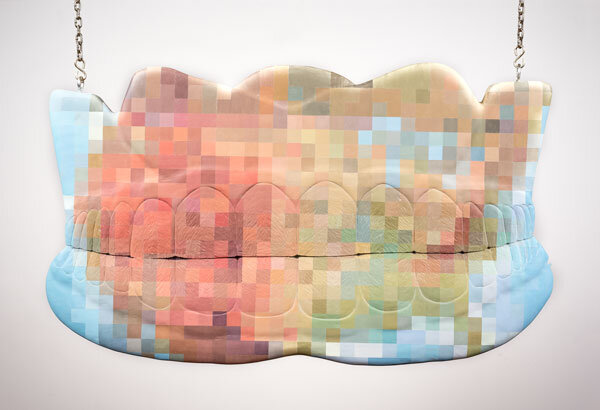R. Kauff
R. Kauff, Iowa | visual art and sculpture
Residency Dates: January 25 – March 1, 2018
Objects & Objections of this land
Opening Reception 6-8pm, Thursday, March 1st
R. Kauff and the Art Lab present some Objects & Objections of this land, a new exhibition by PlatteForum resident artist, R.Kauff, presents. sculptural interventions in familiar objects of use and nostalgia: a surreal sampling of spoons, brushes, folk art, antiques, and hand tools.
Focusing on reimagining hand tools of the future as a way to explore the relationship between object, body, material, and agency, Kauff proposes sculptural objects that seek to disrupt dominant historical narratives. During Kauff’s residency at PlatteForum, ArtLab interns worked closely to discuss the history of manifestos, and how they may become actualized in a discrete hand-made objects.
Kauff’s own work will be shown alongside the “tools” of the high school interns, which range in purpose from hastening graduation to facilitating better vision.
About the Artist
R. Kauff is a visual artist working in print media, sculpture, and installation. She was the 2014 Iowa Arts Fellow, a 2012 intern-in-residence at the Women's Studio Workshop and a 2010 Gordon Arts Fellow. She is an MFA candidate in printmaking and sculpture at the University of Iowa.
"Diderot’s Encyclopedia of the Trades, an Enlightenment project that sought to catalog in exhaustive detail all the machinery, tools, and processes involved in Western industries gave its 18th century subscribers access to images of skilled labor as a representation of human knowledge. Though most readers would have had little or no experience of the tools and techniques described, the Encyclopedié offered an imaginative window into the world of human capabilities, radically situating empirical knowledge against authority of the church.
For my time with PlatteForum, I would like to use Diderot’s idea that the Encyclopedia of the Trades would “change the way people think” as well as the (perhaps contradictory) way Diderot’s images tend to mystify the contemporary reader unfamiliar with 18th century equipment to re-imagine ideas of use, agency, and society through art."

